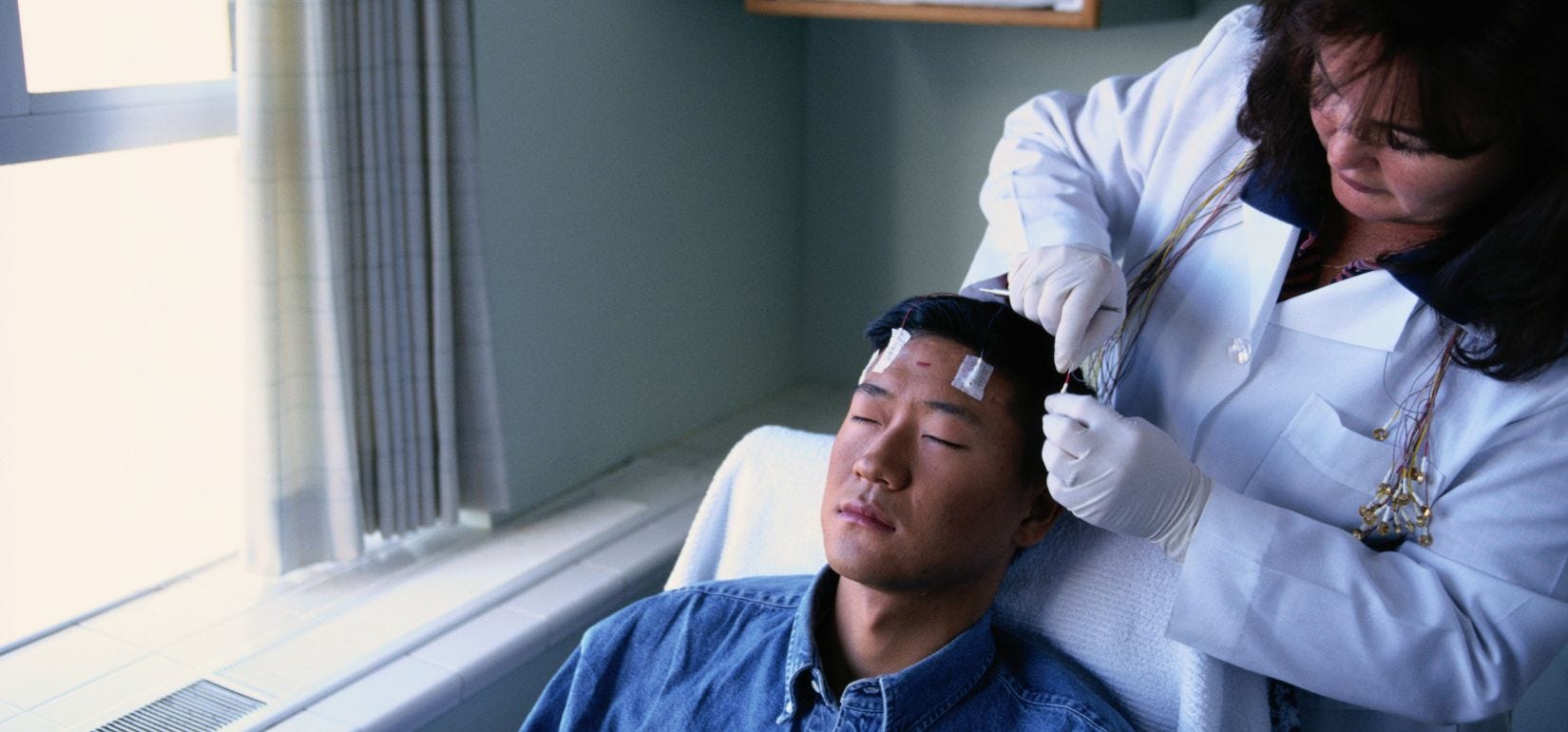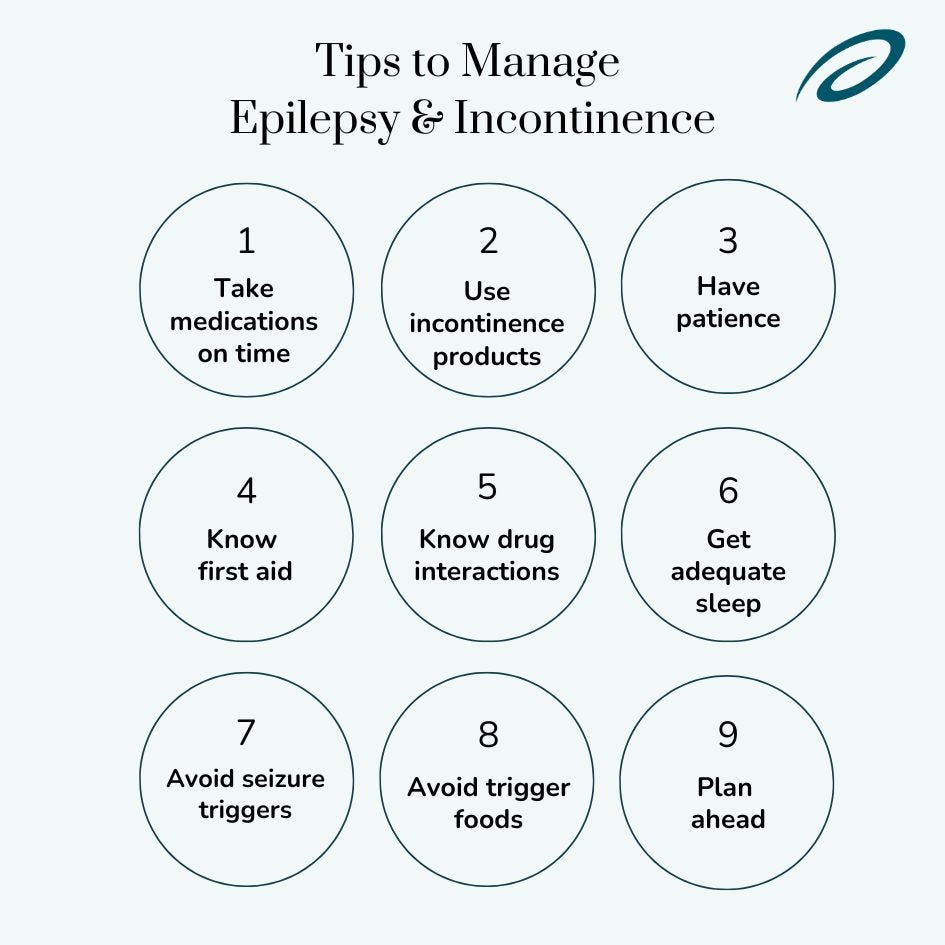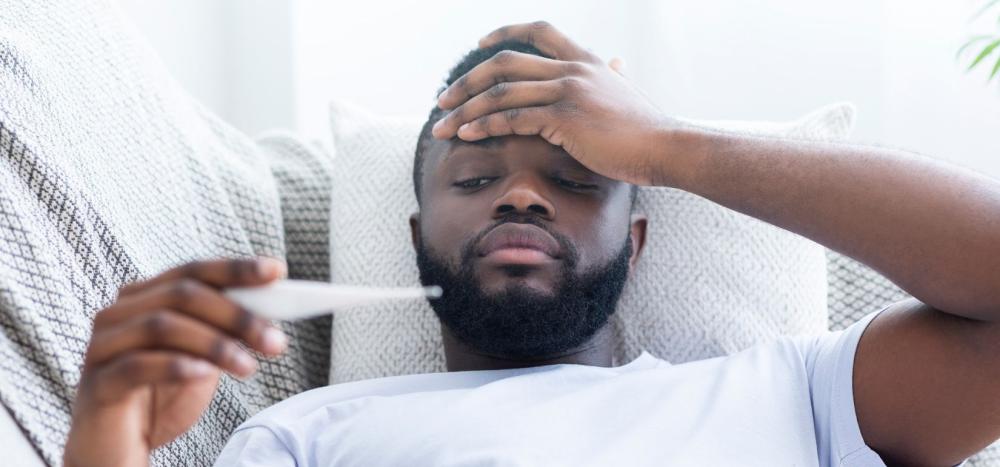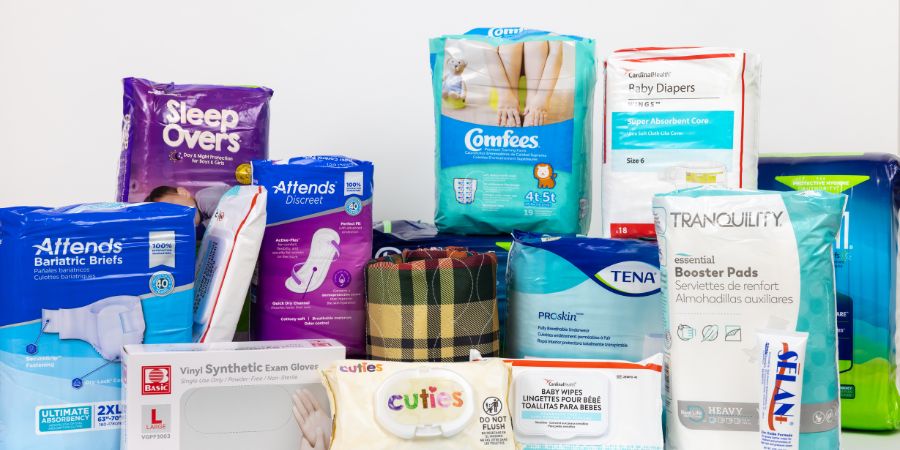With epilepsy, there is a broad range of issues to worry about, such as the safety of someone during seizure activity, biting of the tongue, or collapsing.
However, did you know that incontinence (loss of bladder or bowel control) can result from seizure activity and could precede a seizure?
Find out more about how epilepsy causes incontinence and get tips on how to safely put a plan together to treat symptoms.
How Does Epilepsy Relate to Incontinence?
Epilepsy is simply defined as a neurological disorder caused by abnormal electrical activity in the brain that may lead to recurrent episodes of sensory disturbance, loss of consciousness, or convulsions, commonly referred to as seizures.
Neurological disorders, such as epilepsy, can be associated with urinary incontinence; 39% of patients with epilepsy had at least one urinary symptom and urinary incontinence was the most common.
When it comes to epilepsy and incontinence, the relationship may be due to the type of seizures from which one suffers.
Check Your Eligibility
In 2 easy steps!
Discover the bladder control supplies covered by your Medicaid plan.
Epileptic Seizures & Incontinence
- Tonic-clonic Seizures. Also known as generalized onset seizures, these occur when the muscles become tense and rigid. They may also be clonic, meaning the muscles have jerking movements, which can affect the bladder and urinary tract by increasing the intra-abdominal pressure- thus increasing the amount of pressure placed on the bladder and bowels. In tonic seizures, muscles contract and the bladder muscle is not immune to this. After repetitive muscle contractions and weakness, the pelvic floor muscles may become unable to control the bladder, resulting in accidental bladder leakage or entire voiding of the bladder.
- Absence seizures. Unlike tonic seizures, absence seizures don't have the muscle movements typically associated with seizure symptoms. Instead, they have non-motor symptoms such as lapses in awareness and staring spells. They tend to only last a few seconds and can be mistaken for daydreaming. During these episodes signals from the brain to retain urine may get mixed up as consciousness may be impaired, resulting in the total loss of urine.
It's common, especially during an absence seizure, to have no memory of the event. People suddenly regain consciousness and wonder why their pants are wet. This can be a warning sign in children if absence seizures have been missed. If your child has an accident with no memory of it, they should be taken to their healthcare provider promptly for further evaluation.
Common Seizure Symptoms
- Temporary confusion.
- Incontinence
- Staring spells.
- Uncontrollable muscle movements.
- Sudden fear or anxiety.
- Lack of consciousness.


Common Incontinence Symptoms
- Urine leakage upon adding stress to the bladder due to activities such as laughing, sneezing, coughing, or lifting something heavy.
- Feeling the sudden strong urge to urinate and failing to make it to the restroom in time.
- Frequent urination and leaking due to being unable to fully empty the bladder.
- Having a physical or mental impairment that makes it difficult to make it to the toilet in time.
If symptoms of incontinence or epilepsy are detected, it’s important to speak with a healthcare provider right away, as both can be caused by a more serious condition.
Plus, the sooner you reach a diagnosis, the sooner you can take the proper steps towards managing and treating the condition. Epilepsy is generally treated with the use of medications, sometimes surgery, dietary changes, and devices.
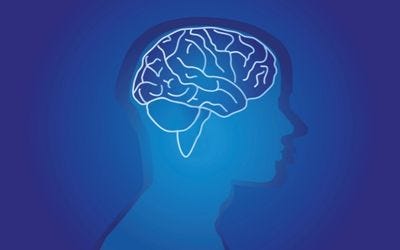

How to Prevent Incontinence & Epilepsy from Teaming Up
Ensure that you are following these guidelines to help prevent symptoms of epilepsy and incontinence.
- Take your medications on time. Set a schedule with your healthcare provider and set daily reminders if needed.
- Use incontinence products. Incontinence supplies, such as pediatric diapers, adult briefs, bladder control pads, or underpads to help minimize messes and keep you or your loved one protected from leaks.
- Have patience. Be patient with yourself or your loved one when managing incontinence and seizures.
- Know first aid. Be prepared for seizures and accidents by knowing first aid.
- Know about drug interactions. Speak with a healthcare professional or pharmacist about drug interactions. Speak with a before taking them with your medications to avoid drug interactions that could trigger seizures.
- Get adequate sleep. It's reccomended that children get 9 to 13 hours of sleep and adults should get 7 to 8.
- Avoid seizure triggers. Avoid elements that may trigger seizures, such as alcohol, flashing lights, drugs, and missing medications.
- Avoid trigger foods. Avoid foods that could trigger seizures, such as high-sugar foods that can cause blood spikes and crashes.
- Plan ahead. Take extra clothing items with you, such as pants, underwear, wipes, and incontinence products in case there is a seizure-related accident.
Medicaid Covered Incontinence Supplies
Incontinence can be treated with the use of medical equipment, medication, surgery, and lifestyle changes as well. However, in some cases, incontinence can only be managed. You may qualify to receive them through Medicaid.
Simply fill out our quick qualification form and we will contact your doctor and provider to make sure your monthly supply of incontinence products are sent directly to your home.
Then we will follow up with you monthly to ensure that you’re still matched with the best products to suit your individual needs. If you need to make a change to your supply, we’ll help you do so in a matter of minutes!
https://www.ncbi.nlm.nih.gov/books/NBK132842/
https://www.ncbi.nlm.nih.gov/pmc/articles/PMC5885137/
Information provided on the Aeroflow Urology blog is not intended as a substitute for medical advice or care from a healthcare professional. Aeroflow recommends consulting your healthcare provider if you are experiencing medical issues relating to incontinence.

